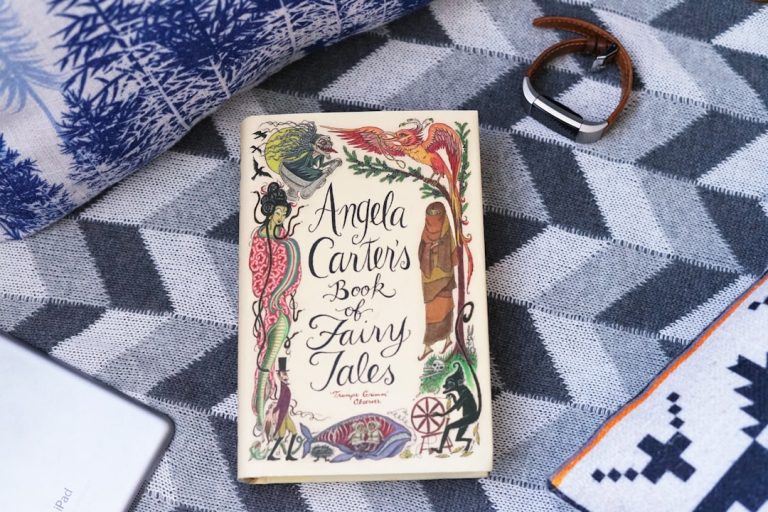
Classic short stories have long been a cornerstone of literary education, offering readers a glimpse into the human experience through concise narratives. These stories, often penned by renowned authors such as Edgar Allan Poe, Nathaniel Hawthorne, and Kate Chopin, encapsulate complex themes and emotions within a limited word count. The brevity of short stories allows for a focused exploration of character, setting, and plot, making them an ideal medium for both seasoned readers and those new to literature.
The appeal of classic short stories lies not only in their narrative depth but also in their ability to provoke thought and discussion. Each story serves as a microcosm of society, reflecting the values, struggles, and aspirations of the time in which it was written.
For English learners, engaging with these texts can be particularly beneficial, as they provide an opportunity to immerse oneself in the language while grappling with universal themes. The rich tapestry of language used by classic authors can enhance vocabulary and comprehension skills, making these stories an invaluable resource for those seeking to improve their English proficiency.
Key Takeaways
- Classic short stories are a valuable resource for English learners to improve their language skills and cultural understanding.
- Reading classic short stories can help English learners improve their vocabulary, grammar, and comprehension skills.
- When choosing classic short stories, English learners should consider the level of difficulty, cultural relevance, and personal interests.
- Analyzing classic short stories can help English learners understand literary techniques, themes, and cultural context.
- English learners can build their vocabulary by identifying and learning new words from classic short stories.
Benefits of Reading Classic Short Stories for English Learners
Reading classic short stories offers numerous advantages for English learners, particularly in terms of language acquisition and cultural understanding. One significant benefit is the exposure to diverse writing styles and vocabulary. Classic authors often employ intricate language and varied sentence structures that can challenge learners while simultaneously enriching their linguistic repertoire.
This exposure helps learners develop a more nuanced understanding of English, enabling them to appreciate the subtleties of expression and tone that characterize effective communication. Moreover, classic short stories frequently delve into themes that resonate across cultures, such as love, loss, identity, and morality. By engaging with these narratives, English learners can gain insights into the cultural contexts that shape the language and its usage.
For instance, reading a story like “The Gift of the Magi” by O. Henry not only introduces learners to idiomatic expressions but also provides a lens through which they can examine the values of sacrifice and love in different cultural settings. This dual benefit of language learning and cultural exploration makes classic short stories an essential component of any English learner’s journey.
Tips for Choosing Classic Short Stories for English Learners

Selecting the right classic short stories for English learners requires careful consideration of several factors to ensure that the material is both accessible and engaging.
For example, if a group of learners is particularly fascinated by themes of adventure or mystery, stories like “The Adventure of the Speckled Band” by Arthur Conan Doyle or “The Lottery” by Shirley Jackson may captivate their attention while also providing rich vocabulary and complex characters.
Another important aspect to consider is the language level of the learners. It is crucial to select stories that are neither too simplistic nor overly complex. Short stories with clear narratives and relatable characters can serve as excellent entry points for learners at various proficiency levels.
For instance, “The Tell-Tale Heart” by Edgar Allan Poe offers suspenseful storytelling while employing straightforward language that can be easily understood with some context. Additionally, providing supplementary materials such as glossaries or discussion questions can further enhance comprehension and engagement with the text.
Analysis of Classic Short Stories for English Learners
| Short Story Title | Author | Main Theme | Key Characters |
|---|---|---|---|
| The Lottery | Shirley Jackson | Tradition and Ritual | Tessie Hutchinson, Mr. Summers |
| The Tell-Tale Heart | Edgar Allan Poe | Guilt and Madness | The narrator, the old man |
| The Gift of the Magi | O. Henry | Sacrifice and Love | Jim and Della Young |
| The Necklace | Guy de Maupassant | Ambition and Deception | Mathilde Loisel, Monsieur Loisel |
Analyzing classic short stories can deepen learners’ understanding of both the language and the themes presented within the narratives. A close reading of a story allows learners to dissect elements such as character development, plot structure, and thematic significance. For example, in “The Necklace” by Guy de Maupassant, learners can explore the protagonist’s journey from wealth to poverty and examine how her desire for social status ultimately leads to her downfall.
This analysis not only fosters critical thinking skills but also encourages learners to draw connections between the story’s themes and their own lives. Furthermore, discussing the author’s intent and historical context can enrich the learning experience. Understanding the societal norms and challenges faced during the time a story was written can provide valuable insights into character motivations and plot developments.
For instance, examining Kate Chopin’s “The Story of an Hour” in light of late 19th-century gender roles can lead to discussions about women’s rights and personal freedom that remain relevant today. Such analyses not only enhance language skills but also cultivate a deeper appreciation for literature as a reflection of human experience.
Vocabulary Building with Classic Short Stories for English Learners
Classic short stories serve as an excellent resource for vocabulary building among English learners. The rich language employed by authors often includes idiomatic expressions, figurative language, and specialized terminology that can expand learners’ linguistic capabilities. Engaging with these texts allows learners to encounter new words in context, which is crucial for effective retention and understanding.
For instance, encountering words like “melancholy” or “quixotic” in a story can prompt learners to explore their meanings and usage in various contexts. To maximize vocabulary acquisition, learners can engage in targeted exercises such as creating word maps or flashcards based on the new vocabulary encountered in their readings. Additionally, discussing these words in class or writing sentences using them can reinforce their understanding and encourage active usage.
By integrating vocabulary building into the reading process, learners not only enhance their language skills but also gain confidence in their ability to express themselves more eloquently.
Discussion Questions for Classic Short Stories for English Learners

Encouraging Critical Thinking
Questions such as “What do you think motivated the main character’s actions?” or “How does the setting influence the story’s outcome?” prompt learners to analyze character motivations and thematic elements while practicing their speaking skills.
Tailoring to Language Goals and Cultural Insights
Moreover, discussion questions can be tailored to address specific language goals or cultural insights. For example, after reading “A Good Man is Hard to Find” by Flannery O’Connor, educators might ask learners how they interpret the grandmother’s character in relation to societal norms of morality and family dynamics.
Exploring Diverse Perspectives and Language Proficiency
Such questions not only stimulate conversation but also allow learners to explore diverse perspectives while honing their language proficiency.
Writing Prompts Inspired by Classic Short Stories for English Learners
Writing prompts inspired by classic short stories can serve as an effective tool for reinforcing language skills while encouraging creativity among English learners. These prompts can range from reflective essays to creative writing exercises that allow learners to explore themes or characters from the stories they have read. For instance, after reading “The Cask of Amontillado” by Edgar Allan Poe, a prompt could ask learners to write an alternate ending where Montresor faces consequences for his actions.
Additionally, prompts can encourage learners to draw connections between their own experiences and those depicted in classic literature. A prompt inspired by “The Secret Life of Walter Mitty” by James Thurber might invite learners to describe a daydream they have had that reflects their aspirations or fears. Such writing exercises not only reinforce vocabulary and grammar but also foster personal expression and engagement with the text.
Resources for Finding Classic Short Stories for English Learners
A wealth of resources exists for educators and learners seeking classic short stories suitable for English language development. Online platforms such as Project Gutenberg offer free access to a vast collection of public domain literature, including many classic short stories that are ideal for classroom use or independent study. This resource allows learners to explore a diverse array of authors and genres without financial constraints.
In addition to online repositories, anthologies specifically curated for English learners can provide valuable context and support materials alongside classic texts. Collections like “Classic Short Stories: A Bilingual Edition” offer translations alongside original texts, making it easier for learners to grasp complex narratives while building their language skills. Furthermore, educators can utilize websites like CommonLit or ReadWorks that provide curated reading materials along with comprehension questions and discussion prompts tailored for various proficiency levels.
By leveraging these resources, educators can create a rich literary environment that fosters both language acquisition and a love for classic literature among English learners. The combination of engaging texts, thoughtful analysis, vocabulary building exercises, and creative writing prompts ensures that classic short stories remain an integral part of the English learning experience.
If you are interested in popular short stories for English learners, you may also enjoy exploring the collection of books available on Sersea Ink. This website offers a variety of reading materials that can help improve your language skills and expand your literary knowledge. Additionally, you can check out their selection of song lyrics here for a different way to practice English comprehension and vocabulary. Happy reading!
FAQs
What are popular short stories for English learners?
Some popular short stories for English learners include “The Gift of the Magi” by O. Henry, “The Lottery” by Shirley Jackson, “The Tell-Tale Heart” by Edgar Allan Poe, and “The Necklace” by Guy de Maupassant.
Why are short stories beneficial for English learners?
Short stories are beneficial for English learners because they provide concise and manageable reading material that allows for the practice of comprehension, vocabulary, and grammar in a shorter amount of time.
How can English learners use short stories to improve their language skills?
English learners can use short stories to improve their language skills by reading and analyzing the text, identifying new vocabulary, practicing pronunciation, and discussing the themes and characters with others.
Where can English learners find popular short stories to read?
English learners can find popular short stories to read in English language textbooks, online resources, and collections of short stories specifically curated for language learners. Many libraries also have a selection of short stories available for borrowing.
What are some tips for English learners to effectively study short stories?
Some tips for English learners to effectively study short stories include reading the story multiple times, taking notes on vocabulary and key points, discussing the story with others, and seeking out additional resources such as audio recordings or study guides.



